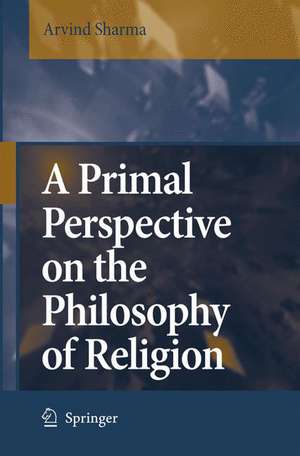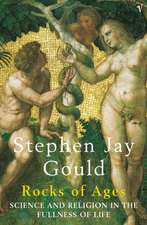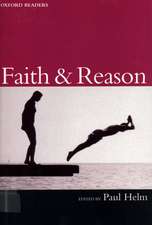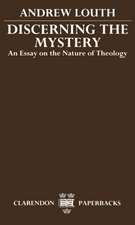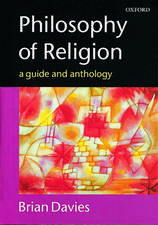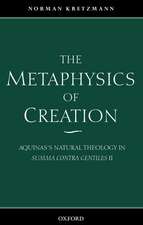A Primal Perspective on the Philosophy of Religion
Autor Arvind Sharmaen Limba Engleză Hardback – 26 sep 2006
| Toate formatele și edițiile | Preț | Express |
|---|---|---|
| Paperback (1) | 638.57 lei 6-8 săpt. | |
| SPRINGER NETHERLANDS – 19 oct 2010 | 638.57 lei 6-8 săpt. | |
| Hardback (1) | 644.82 lei 6-8 săpt. | |
| SPRINGER NETHERLANDS – 26 sep 2006 | 644.82 lei 6-8 săpt. |
Preț: 644.82 lei
Preț vechi: 758.60 lei
-15% Nou
Puncte Express: 967
Preț estimativ în valută:
123.43€ • 134.11$ • 103.74£
123.43€ • 134.11$ • 103.74£
Carte tipărită la comandă
Livrare economică 21 aprilie-05 mai
Preluare comenzi: 021 569.72.76
Specificații
ISBN-13: 9781402050138
ISBN-10: 1402050135
Pagini: 246
Ilustrații: XII, 246 p.
Dimensiuni: 210 x 297 x 19 mm
Greutate: 0.54 kg
Ediția:2006
Editura: SPRINGER NETHERLANDS
Colecția Springer
Locul publicării:Dordrecht, Netherlands
ISBN-10: 1402050135
Pagini: 246
Ilustrații: XII, 246 p.
Dimensiuni: 210 x 297 x 19 mm
Greutate: 0.54 kg
Ediția:2006
Editura: SPRINGER NETHERLANDS
Colecția Springer
Locul publicării:Dordrecht, Netherlands
Public țintă
ResearchCuprins
The Concept of God: Monotheism.- Other Concepts of God.- Arguments for the Existence of God.- Arguments Against the Existence of God.- The Problem of Evil.- The Concept of Revelation and the Primal Religious Tradition.- Theories of Faith.- Evidentialism, Foundationalism and Rational Belief.- Language and Religious Thought.- The Problems of Religious Language.- The Problem of Verification.- Conflicting Truth Claims of Different Religions.- Human Destiny: Immortality and Resurrection.- Human Destiny: Karma and Reincarnation.
Recenzii
"Despite the absence of written texts, primal religions have an implicit philosophy. They can offer a fresh perspective on controversial philosophical issues. This study shows how materials of primal religious experience can be incorporated in the categories of modern philosophy of religion. Fourteen chapters offer examples varying from concepts of God and revelation to conflicating truth claims and the problem of human destiny. The book contends that the primal perspective can widen and deepen the horizons of philosophy of religion and enhance the philosophical appreciation of religion as a universal phenomenon." Jacobus Waardenburg, University of Lausanne, Switzerland
"Arvind Sharma makes a perfect case for a cross-cultural philosophy of religion in which all world religions, especially primal religions, could effectively participate in the dialogue and conversation about the relevant issues in the quest for the transcendent and the sacred. The work ultimately may be a prolegomena to the study of philosophy of religion of many primal religious traditions, because it provokes debate and responses from scholars of these traditions. This book will certainly begin a broader conversation in the cross-cultural philosophy of religion." Jacob Olupona, The University of California, Davis, U.S.A.
"Arvind Sharma makes a perfect case for a cross-cultural philosophy of religion in which all world religions, especially primal religions, could effectively participate in the dialogue and conversation about the relevant issues in the quest for the transcendent and the sacred. The work ultimately may be a prolegomena to the study of philosophy of religion of many primal religious traditions, because it provokes debate and responses from scholars of these traditions. This book will certainly begin a broader conversation in the cross-cultural philosophy of religion." Jacob Olupona, The University of California, Davis, U.S.A.
Textul de pe ultima copertă
The philosophy of religion has been a largely European intellectual enterprise in two ways. It arose in Europe as a discipline and its subject matter has been profoundly influenced by Christianity as practised in Europe.
The process of its deprovincialization in this respect started when it began to take religions other than Christianity within its purview - such as Hinduism, Buddhism, and Islam. Although now the religions of both East and West have found a place in it, a religious tradition which is present in both the East and the West, namely, the primal religious tradition, still remains unrepresented in its discussions, perhaps under the mistaken assumption that this religious tradition has little to offer by way of philosophical reflection.
This book challenges this widespread assumption and demonstrates how primal religions have something significant to offer on virtually every theme discussed in the philosophy of religion. Through this book the primal religous tradition stakes its claim for a place at the table.
"Despite the absence of written texts, primal religions have an implicit philosophy. They can offer a fresh perspective on controversial philosophical issues. This study shows how materials of primal religious experience can be incorporated in the categories of modern philosophy of religion. Fourteen chapters offer examples varying from concepts of God and revelation to conflicating truth claims and the problem of human destiny. The book contends that the primal perspective can widen and deepen the horizons of philosophy of religion and enhance the philosophical appreciation of religion as a universal phenomenon." Jacobus Waardenburg, University of Lausanne, Switzerland
"Arvind Sharma makes a perfect case for a cross-cultural philosophy of religion in which all world religions, especially primal religions, could effectively participate in the dialogue and conversation about the relevant issues in the questfor the transcendent and the sacred. The work ultimately may be a prolegomena to the study of philosophy of religion of many primal religious traditions, because it provokes debate and responses from scholars of these traditions. This book will certainly begin a broader conversation in the cross-cultural philosophy of religion." Jacob Olupona, The University of California, Davis, U.S.A.
The process of its deprovincialization in this respect started when it began to take religions other than Christianity within its purview - such as Hinduism, Buddhism, and Islam. Although now the religions of both East and West have found a place in it, a religious tradition which is present in both the East and the West, namely, the primal religious tradition, still remains unrepresented in its discussions, perhaps under the mistaken assumption that this religious tradition has little to offer by way of philosophical reflection.
This book challenges this widespread assumption and demonstrates how primal religions have something significant to offer on virtually every theme discussed in the philosophy of religion. Through this book the primal religous tradition stakes its claim for a place at the table.
"Despite the absence of written texts, primal religions have an implicit philosophy. They can offer a fresh perspective on controversial philosophical issues. This study shows how materials of primal religious experience can be incorporated in the categories of modern philosophy of religion. Fourteen chapters offer examples varying from concepts of God and revelation to conflicating truth claims and the problem of human destiny. The book contends that the primal perspective can widen and deepen the horizons of philosophy of religion and enhance the philosophical appreciation of religion as a universal phenomenon." Jacobus Waardenburg, University of Lausanne, Switzerland
"Arvind Sharma makes a perfect case for a cross-cultural philosophy of religion in which all world religions, especially primal religions, could effectively participate in the dialogue and conversation about the relevant issues in the questfor the transcendent and the sacred. The work ultimately may be a prolegomena to the study of philosophy of religion of many primal religious traditions, because it provokes debate and responses from scholars of these traditions. This book will certainly begin a broader conversation in the cross-cultural philosophy of religion." Jacob Olupona, The University of California, Davis, U.S.A.
Caracteristici
Provides critical reflections on the epistemology and assumptions of primal religious traditions Takes an interdisciplinary approach to philosophy of religion Is the first and only book of its kind
